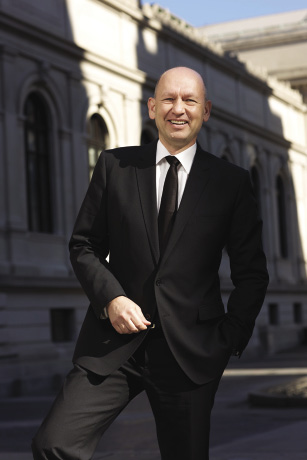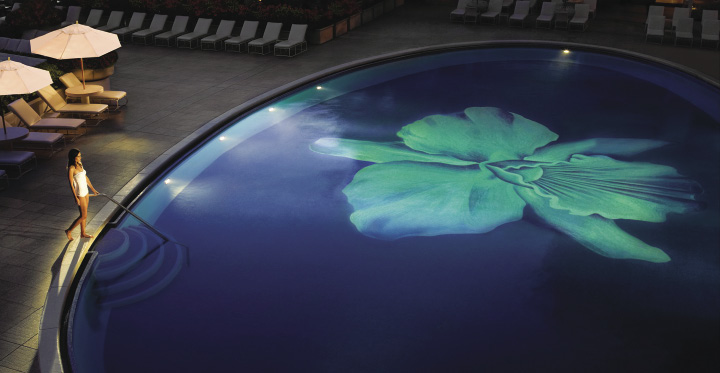- Home
- Media Kit
- Current Issue
- Past Issues
- Ad Specs-Submission
- Ad Print Settings
- Reprints (PDF)
- Photo Specifications (PDF)
- Contact Us

![]()
ONLINE


Peter Shaindlin
Executing a Vision
Editors’ Note
Prior to joining Halekulani Corporation, Peter Shaindlin was Founding Principal of Lotus Luxury Group and Vice President, Rosewood Hotels & Resorts, and he previously managed many iconic luxury properties including Rosewood’s Little Dix Bay, the Boca Raton Resort & Club, and the Stanhope Hotel and Grand Bay Hotel in New York City. He also directed Food & Beverage operations at the United Nations Headquarters in New York.
Company Brief
Founded in 1980 and headquartered in Waikiki, Halekulani Corporation (www.halekulanicorporation.com), is comprised of two primary assets in the heart of Waikiki, which together make up Hotels & Resorts of Halekulani. Both hotels are internationally recognized luxury hospitality establishments. Halekulani Corporation completely redeveloped the legendary Halekulani in the early 1980s and manages both hotels. Halekulani Corporation is a wholly owned subsidiary of Mitsui Fudosan Co., Ltd. of Tokyo, Japan.
What determines true luxury today? Is it tougher to differentiate in that space?
Luxury refers essentially to an object or service that plays to an experience of sumptuous living. Although it’s a noun, it does not actually exist per se as a physical object. It could therefore be argued that luxury does not exist in and of itself, as it’s really an emotional euphemism for a memorable quality.
The old sign “luxury apartments” says it all – it has no meaning anymore. What people want now is an experience that evokes emotion and creates memories.
If you try to design luxury, it’s doomed to fail by falling into the mainstream of that type of thinking, whereas when one starts to define an experience, it instead transcends luxury.

The iconic pool of the Halekulani (above)
How do you train your people on the importance of that guest experience?
Like most luxury brands around the world, particularly in the old days, we used to train our people on “what” to do. Since then, we’ve started training them to think about the word “why.” We tell them, we’re not going to script what to say when you greet guests, but here is why it’s important to greet them warmly.
We empower the employees and believe in their intelligence and we find that more often than not, they will rise to the occasion and do something sincere and personable, reflecting their own style.
The danger today is that while so many iconic brands want to expand, as you grow the risk increases proportionately that your service will become institutionalized – in the interest of consistency, it’s understandably tough to resist that scripting.
We would like to take the Halekulani brand out and expand it in the near future beyond our own shores to the East and West, and in doing so, we’re conscious of the fact that what has made us successful is the employee and not the brick-and-mortar.
How far do you go to customize the guest experience?
We focus on the period when the potential repeat guest is not with us, before or after his last day, as opposed to a strictly in-house experience.
During that time, we have an opportunity to communicate with him. There are two parts to the loyalty program: one is what happens when you’re here but the other is what happens pre-arrival and post-stay, and that is not so much about just relying on technology with e-mail blasts and social media. Those components are fine, but to maintain high-touch versus high-tech, we have included elements that are more valuable but less expensive to do in terms of CRM management.
For example, the general manager can run a list of his top 50 paying guests annually and simply telephone them during the months post-stay and pre-arrival for the next stay and thank them for having stayed, and ask them what they want for the next stay – it’s much better than online customer satisfaction surveys and everything else predominantly tech-driven, because the guest hangs up the phone and tells his spouse about it. Simplicity is key.
This adds more value and is also more sincere – and therefore human – than trying to figure out how to use technology to gain fair share.
How critical is it to have a long-term vision and strategy from the start?
It’s critical. In business education today, strategy is taught to be of paramount importance. People conduct strategy sessions and talk about strategic design and expansion, but what they’re doing is running straight from home to second base.
First base is the vision. It may sound perfunctory or even obvious to say that, but one can talk to executives today in our industry and they will tell you their strategic plans without articulating their vision.
Strategy is a function of vision, and it’s the way of executing the vision; it’s a plan. People are enacting plans, but they struggle to articulate their vision.
At Halekulani, we clearly understand what our vision is for the guest and the future, and while strategy and budget are important, they are just functions of the vision.
Are there enough people in this industry with business sense who can also maintain the desired focus on hospitality?
What the great international luxury hotels have in common in most cases are owners that, when you speak to them, are business-minded at the core but also extremely passionate about the properties they own. They allow a sense of shared vision and freedom by the GM and executives who run those properties. When that happens, the guest walks about with a memorable experience.
Does utilizing the latest technology enhance the business?
What honestly concerns me is that most technology in hotels is to help the hotel be efficient and therefore earn more profit. The hotels will argue that the technology is also to help the guest experience. However, people are not paying for technology – what they want is the human element they have lost touch with in their daily lives.
Guests are not actually coming back to hotels for a nice room and elegant decor; that is a given at the luxury level. What they’re coming back for is the personal experience they can only get at that property.
Social media is a good tool if it serves as a communication platform for the guest and hotel to communicate with each other.
For the guests, it also serves as a platform where they can communicate with each other independently of the hotel and we’re all for that, because if we’re doing a good job, they become our best ambassadors.
For a property with so much recognition, will the strategy ever change?
In a service environment, what is fundamental in addition to high-touch is consistency, and with consistency comes timelessness – Halekulani has the same soul and spirit that has made it iconic for almost 100 years.
What we don’t want to do is provide trendy services. We want to do things that are trendsetting and that have longevity – this is what people are truly paying for.•